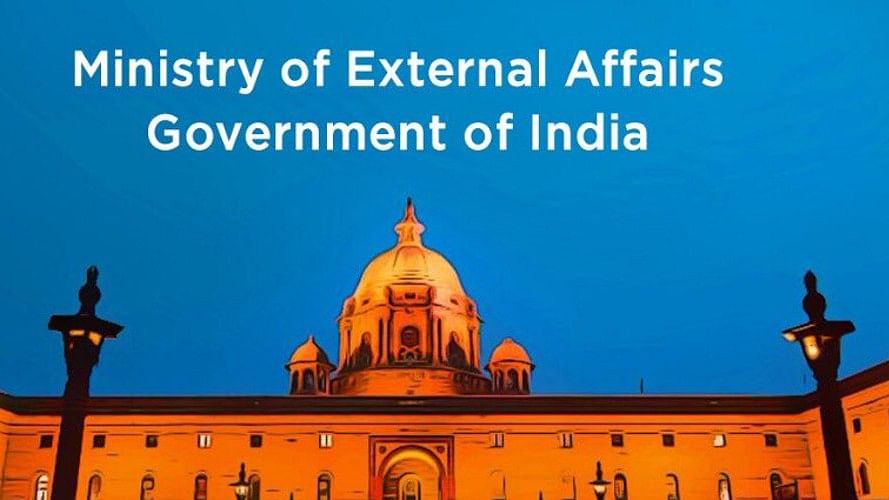
The External Affairs Ministry logo.
Credit: X/@MEAIndia
New Delhi: Amid back-to-back high-level engagements between New Delhi and Washington, a federal government commission of the United States reported that religious freedom 'continued to deteriorate' in India in 2023, to which India took strong exception.
New Delhi dismissed the latest report by the US Commission on International Religious Freedom (USCIRF), calling it a biased organisation with a political agenda. The Ministry of External Affairs in New Delhi sought to show the mirror to the USCIRF suggesting that it should rather focus on addressing the human rights issues in the US.
The USCIRF in its latest report alleged that the government, led by the Bharatiya Janata Party (BJP), had reinforced “discriminatory nationalist policies, perpetuated hateful rhetoric, and failed to address communal violence disproportionately affecting Muslims, Christians, Sikhs, Dalits, Jews, and Adivasis (indigenous peoples)”.
The US panel’s latest report titled 'India’s Collapsing Religious Freedom Conditions' came just about 10 days after President Joe Biden hosted Prime Minister Narendra Modi at his family residence in Greenville, a suburb of Wilmington, Delaware, for a bilateral meeting on the sideline of the summit of the Quad on September 21. Biden’s Secretary of State Antony Blinken and National Security Advisor Jake Sullivan had meetings with External Affairs Minister S Jaishankar in Washington DC earlier this week.
Defence Minister Rajnath Singh had also met his US counterpart Lloyd Austin in Washington DC in the last week of August.
Notwithstanding the series of high-level engagements between New Delhi and Washington DC, the USCIRF came out with its latest report on religious freedom in India. It alleged that the continued enforcement of the Unlawful Activities Prevention Act (UAPA), Foreign Contribution Regulation Act (FCRA), Citizenship Amendment Act (CAA), and anti-conversion and cow slaughter laws in India had resulted in the arbitrary detention, monitoring, and targeting of religious minorities and those advocating on their behalf.
The USCIRF reiterated its recommendation to the American State Department to designate India as a “country of particular concern” for “systematic, ongoing, and egregious violations of religious freedom, as defined by the International Religious Freedom Act (IRFA)” of the US.
It also recommended that Washington DC should impose targeted sanctions on individuals and entities responsible for severe violations of religious freedom by freezing those individuals’ assets and/or barring their entry into the US under human rights-related financial and visa authorities, citing specific religious freedom violations.
New Delhi rejected the report with Randhir Jaiswal, the spokesperson of the MEA, calling the USCIRF “a biased organization with a political agenda”. “It continues to misrepresent facts and peddles a motivated narrative about India. We reject this malicious report, which only serves to discredit USCIRF further,” said Jaiswal.
“We would urge USCIRF to desist from such agenda-driven efforts. The USCIRF would also be well advised to utilise its time more productively on addressing human rights issues in the United States,” added the MEA spokesperson.
Just before the Modi-Biden meeting in Delaware on September 21, the White House officials had held a meeting with the representatives of the American-Sikh organisations, known for supporting secessionist campaigns in favour of carving out Khalistan from India. A court in the US had also summoned the Government of India and some of its top security officials following a lawsuit filed by Gurpatwant Singh Pannun, a leader of the secessionist Sikhs for Justice (SFJ), in connection with the allegation of an attempt to assassinate him.
The two developments just before the Modi-Biden meeting at Wilmington, Delaware had renewed the focus on the allegations about India’s intelligence agencies plotting to assassinate Khalistani Sikh activists in the US.
Besides, Adam Schiff, a member of the American House of Representatives, had also introduced the Transnational Repression Reporting Act of 2024, which would require the US attorney general, in coordination with other relevant federal agencies, to report cases of transnational repression against people in America.
